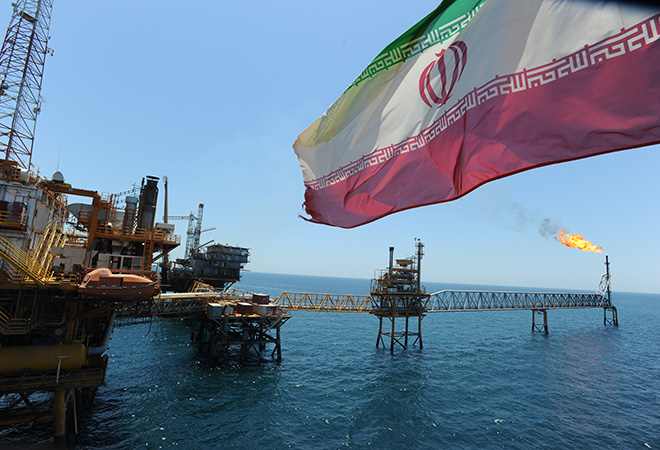Australia/Israel Review
Why the China-Iran deal is concerning
Jul 31, 2020 | Lahav Harkov

With Iran and China working on a multibillion-dollar 25-year economic and security deal, there are many reasons to be concerned.
The proposed agreement, leaked to the New York Times which reported on it on July 11, would lead to a closer military relationship between Teheran and Beijing, including joint military exercises, research and weapons development and intelligence sharing. It would also increase Chinese investments in Iranian banking, telecommunications and transportation, such as airports and railways. China would reportedly get a discounted supply of Iranian oil in return.
The document describes the countries as “two ancient Asian countries… with a similar outlook” that “will consider one another strategic partners.”
Neither side has publicly confirmed that the document is genuine. When asked about a deal with Iran a few weeks ago, Chinese Foreign Ministry spokesman Zhao Lijian said: “China and Iran enjoy traditional friendship, and the two sides have been in communication on the development of bilateral relations. We stand ready to work with Iran to steadily advance practical cooperation.”
Meanwhile, there is public debate in Iran about whether the agreement could be a debt trap, with former president Mahmoud Ahmadinejad speaking out against it. The agreement has been in the works for a long time – Chinese leader Xi Jinping first proposed it on a visit to Teheran in 2016 – and the timing for the recent progress likely has to do with Iran being especially economically weak these days.
According to Carice Witte, executive director of SIGNAL, a think tank focused on China-Israel relations: “This is indicative of the Chinese approach, [to] identify where there is a vulnerability and then patiently look for ways to capitalise on it.”
China has much to gain from the deal besides a discount on gas when energy prices are plummeting anyway. The agreement fits into China’s Belt and Road Initiative to build infrastructure across the world, while bringing Iran into its orbit of influence. It also would bolster China’s new digital currency e-RMB as a way to bypass American systems and reduce the power of the dollar.
Plus, China would gain power and influence in Iran, a diplomatic card it can play with respect to the US and garner greater leverage in the Gulf.
For Israel, the potential for damage from such an agreement is clear.
As Witte said, “Any dollar going into the Iranian system is one that can likely be spent against Israel.” This is especially clear when it comes to the bolstering of Iran’s military through cooperation with China. Any of the new resources directed to the Islamic Republic’s army can potentially – and likely will – be turned on Israel.
Another part of the deal may be a massive sale of weapons to Iran. A recent Pentagon report said China seeks to sell Iran attack helicopters, fighter jets, tanks and more once the UN arms embargo expires in October.
While Israelis and Israel supporters may find it hard to believe, the Chinese Government truly does not think Iran is a danger to Israel, Witte said. “China’s perception is that Iran doesn’t mean what it says about destroying Israel,” she added.
Israel and the US have been pushing UN Security Council members to extend the arms embargo on Iran that began under the Joint Comprehensive Plan of Action (JCPOA), the 2015 nuclear agreement between Iran and world powers. Israel and the US have cited Teheran’s violations of that deal and continued attempts to build up its nuclear program, for which the International Atomic Energy Agency has repeatedly rapped Iran in recent weeks, as well as its sponsorship of terrorism and warfare through proxies around the Middle East.
But Chinese Ambassador to the UN Zhang Jun said in mid-July his country opposes US attempts to activate the JCPOA’s “snapback sanctions” mechanism.
The return of US sanctions in 2018 has led to a major economic crisis in Iran and subsequent political instability. This empowered hardliners to say Iran never should have made a deal involving the US in the first place. They won a decisive majority of Iran’s parliament in an election this year.
But it also has led to protesters taking to the streets this year, protesting a government that uses its money to pay for wars in other countries instead of helping its own people. Experts say the regime is as unpopular as it has ever been since the Islamic Revolution.
The US “maximum pressure” campaign has clearly had a major impact on Iran, but a massive influx of Chinese investments will go a long way toward undoing it, effectively relieving the pressure.
Another concern is regarding Chinese companies’ involvement in infrastructure projects in Israel and Iran. This is already taking place, but the 25-year agreement would deepen those ties.
A Jerusalem Post investigation last month found that three of the six international groups bidding on the tender to build two lines of the Tel Aviv light rail include Chinese-owned companies that also worked on railway projects in Iran.
A report by the RAND research institute this year warned that due to China’s close ties with Iran, the Chinese Government could have companies share insights on Israel with Teheran to gain favour and influence. In addition, China could use the companies operating in Israel and Iran for political leverage on Israel, such as in 2013, when it conditioned a Beijing visit by Prime Minister Binyamin Netanyahu on his stopping defence officials from testifying in a New York federal lawsuit against the Bank of China for laundering Iranian money for Hamas and Palestinian Islamic Jihad.
The US is waiting to see what actual agreement emerges, and it will continue to take action against any Chinese company breaking sanctions, a State Department source said.
Israeli Prime Minister Netanyahu’s office declined to comment on this matter, but it is likely eyeing the China-Iran agreement with concern.






